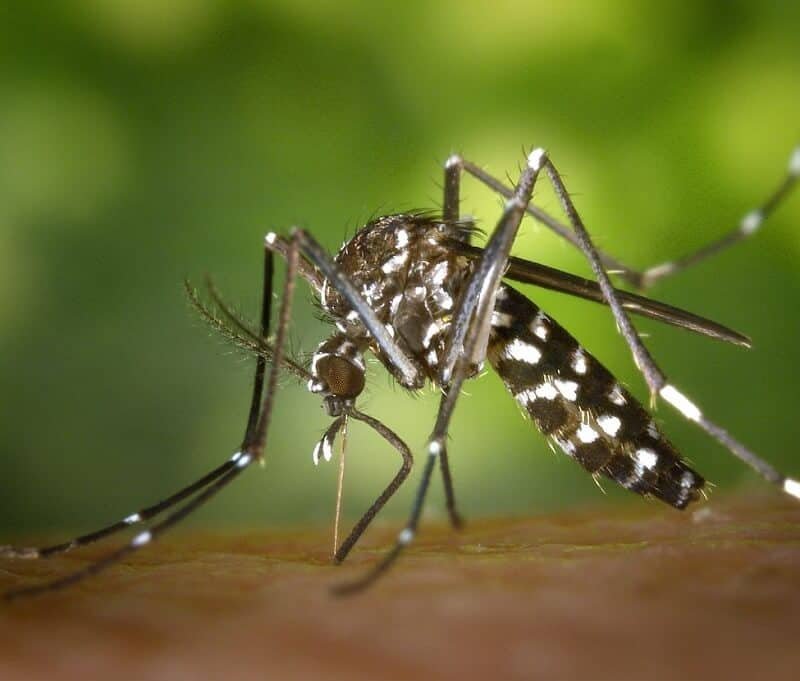
Mosquitos are annoying no matter where you go and there’s nothing as annoying then when these little nemesis disrupt your piece while on a vacation.
So, are there mosquitos in Croatia?
Unfortunately, there are plenty of mosquitos in Croatia during the summer season, so it’s advised to bring anti-mosquito devices, clothing, and remedies if you choose Croatia as a vacation destination. It’s important to state that Croatian Mosquitoes aren’t dangerous or transmit diseases.
Mosquitos are keen on wet, bushy vegetation, pools of stale water, and warm weather.
How bad are the mosquitoes in Croatia?
There are no dangerous mosquitoes in Croatia that transmit diseases or cause health issues. Croatia might have plenty of mosquitoes, especially during the summer months, but popular tourist cities regularly repel mosquitoes each season to decrease their population.
Even a mosquito bite isn’t that bad unless you are a mosquito magnet or have allergic reactions.
In Croatia, you’ll find common European mosquitos such as Aedes rusticus, but the notorious Aedes albopictus (the Asian Tiger Mosquito) is the worst.
While no mosquitoes that live in Croatia are dangerous and transmit diseases, the Asian Tiger Mosquito bite hurts the most, causing immediate itching and wellness.
Mosquitoes in Croatia don’t carry malaria!
I felt like I needed to highlight this fact, there’s no risk of Croatian mosquitoes transmitting dangerous diseases such as malaria.
Istria and coastline
Istria and the coastline (from Kvarner to Dalmatia) are full of mosquitoes during the summer, so it’s important to take precautions when planning a vacation in the region.
Dubrovnik
Dubrovnik is a city that regularly employs a mosquito-repellent strategy every season in the early morning hours between 2-6 am.
According to the city’s office, Dubrovnik spends nearly 100 000 euros each season to battle this little, flying monsters.
Thus, you shouldn’t experience too many mosquito encounters while in Dubrovnik, but they still exist in a minority.
However, these small mosquito encounters are only a problem in some areas of the town and near forests where rain got stuck and hosted a nest.
Split
Split is a popular tourist destination, especially during the famous Ultra festival in July.
Thus, the town gets regularly cleaned of mosquitos and similar insects that could interfere with people’s plans.
Just like anywhere else down the coastline, you won’t be able to completely miss mosquitos in Split if you travel a lot unless you are lucky, but there’s nothing serious about mosquitos in Split.
Islands
Islands in Dalmatia such as Hvar, Korčula, Vis, and Brač do have mosquitos just like Krk, Cres, Pag, Rab, and other islands around Istria and Kvarner.
However, what I have found out is that the amount of mosquitos on these islands greatly depends on the season, so it’s impossible to give one answer.
What I can confirm from personal experience is that there are fewer mosquitos on Croatian islands than near the coastline and especially less than in mountain and continental Croatia.
For instance, before writing this article I was on vacation in Cres, and haven’t encountered a single mosquito to my surprise.
Continental Croatia
Continental Croatia tends to have serious problems with mosquitos due to large humidity and bodies of water.
Baranja is a good example of terrible mosquitoes infestations as the numbers have doubled in the last few years.
So, whether you visit Rijeka, Split, or Zagreb, the mosquitos will follow you on every step!
Mountainous Croatia
The area such as Plitvice Lakes, Lika, and overall the region of Gorski Kotar is full of huge forests and high humidity which hosts mosquitos during the spring and summer months.
Hopefully, as soon as the cold weather approaches this is no longer a problem.
The months with the most mosquitoes
Mosquitoes in Croatia already start in May as the temperatures rise, but the peak season for mosquitoes in Croatia is in June, July, August, and September.
As September ends, so do the mosquitoes and once October starts, the times get easier as mosquitoes disappear in most areas.
Planning a vacation in Croatia in June, July or August demands careful preparations against mosquito attacks.
How to deal with mosquitoes while in Croatia
1. Wear Protective Clothing
One effective way to shield yourself from mosquito bites is by wearing protective clothing. Opt for long-sleeved shirts, long pants, and socks, especially during dawn and dusk when mosquitoes are most active. Light-colored clothing can also help as mosquitoes are generally attracted to dark colors.
2. Use Mosquito Repellents
Using mosquito repellents is a key defense against mosquito bites. Look for repellents containing DEET, picaridin, or oil of lemon eucalyptus (OLE). Reapply as needed, particularly if you’re sweating or spending extended periods outdoors and in the water.
3. Stay Indoors During Peak Mosquito Activity
Mosquitoes in Croatia are most active during dawn and dusk. To minimize your exposure to these pesky insects, consider staying indoors during these peak hours. If you must venture out, take extra precautions such as wearing protective clothing and applying mosquito repellent.
4. Secure Your Accommodation
When booking accommodation in Croatia, choose options that have proper screens on windows and doors. This will help prevent mosquitoes from entering your living space. Additionally, consider using air conditioning or fans, as mosquitoes are less likely to thrive in well-ventilated and cooler environments.
5. Create a Mosquito-Free Environment
Make your immediate surroundings less attractive to mosquitoes. Remove standing water sources like buckets, flowerpots, and birdbaths, as they serve as breeding grounds. Keep windows and doors closed or install mosquito screens to prevent their entry. Utilize citronella candles or mosquito coils to repel mosquitoes from outdoor areas.
6. Be Mindful of Water Sources
If you plan to visit areas with lakes, ponds, or rivers, be cautious of mosquito breeding grounds. Avoid stagnant water and wear appropriate clothing and repellents to protect yourself. It’s also advisable to avoid heavily vegetated areas, as they are commonly inhabited by mosquitoes.
7. Utilize Mosquito Nets
When sleeping, especially in open-air environments, consider using mosquito nets. These nets act as a physical barrier between you and mosquitoes, providing a night of peaceful and protected sleep. Ensure the nets are properly tucked in and don’t have any holes or gaps.
8. Use nature to battle mosquitoes
In addition to traditional mosquito repellents, some natural remedies may help deter mosquitoes. Essential oils like citronella, lavender, sage, and peppermint can be applied to the skin or used in diffusers to repel mosquitoes.
Croatian coastline regions and islands are full of lavender, so sitting next to it or harvesting some and bringing it to the apartment can be a lucrative solution as well.
However, it’s important to note that natural remedies may have varying levels of effectiveness, so it’s wise to use them in conjunction with other preventive measures.
Dealing with Mosquito Bites
Despite your best efforts, you may still end up with mosquito bites. Here are some steps to alleviate discomfort and promote healing:
1. Clean the Affected Area
Wash the affected area with mild soap and water to cleanse it and reduce the risk of infection. Gently pat the skin dry with a clean towel.
2. Apply Calamine Lotion or Aloe Vera Gel
To relieve itching and soothe the skin, apply calamine lotion or aloe vera gel to the mosquito bites. These products have cooling properties that can provide temporary relief.
3. Apply Ice
Applying ice for 5-10 minutes is sometimes all you need against mosquito bites.
While regular mosquito bites don’t hurt much unless you are sensitive and have an allergic reaction, tiger mosquito bites can be painful and annoying.
4. Avoid Scratching
Although it’s tempting to scratch mosquito bites, doing so can lead to further irritation and potential infection. Avoid scratching to prevent worsening the discomfort and prolonging the healing process.
5. Seek Medical Attention if Necessary
If you experience severe allergic reactions, persistent swelling, or signs of infection, seek medical attention promptly. A healthcare professional can provide appropriate treatment and guidance based on your specific condition.
Conclusion
Croatian mosquitoes are annoying just like any mosquitoes in any other state, but aren’t dangerous nor transmit any diseases.
As the warm summer months approach, so do the mosquitoes and when you add some extra humidity there are perfect conditions for these annoying insects.
Croatia does its best to prevent mosquitoes from replicating every season, but it’s recommended that you still avoid risky areas and protect yourself with proper clothing, devices, and remedies.
